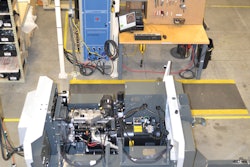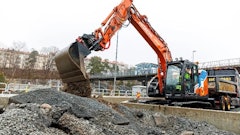The world is going through a workplace revolution that will bring a seismic shift in the way humans work alongside machines, according to new research by the World Economic Forum (WEF), with more than half of all current workplace tasks projected to be performed by machines by 2025 as opposed to 29 percent today.
Yet in its new report, The Future of Jobs 2018, the “robotization” of the workplace is also expected to create more jobs than the ones it eliminates, with 133 million new jobs expected to be created by 2022 compared to 75 million that will be displaced for a net gain of 58 million positions, the group said.
Based on a survey of chief human resources officers and top strategy executives from companies across 12 industries and 20 developed and emerging economies – which collectively account for 70 percent of global gross domestic product – the WEF’s report finds that 54 percent of employees of large companies would need “significant re- and up-skilling” in order to “fully harness” the growth opportunities offered by this workplace shift to machines and algorithms.
At the same time, just more than half of the companies surveyed by the WEF said they only planned to “re-skill” those employees that are in key roles while only one third planned to re-skill at-risk workers. And while nearly 50 percent of all the companies polled by the group expect their full-time workforce to shrink by 2022 as a result of automation, almost 40 percent expect to extend their workforce generally and more than a quarter expect automation to create new roles in their enterprise.
The WEF noted that “technology proficiency,” such as technology design and programming, and distinctly human skills, such as creativity, critical thinking and persuasion, will be among the “competences” witnessing a “sharp increasing in importance” in terms of job creation.


















